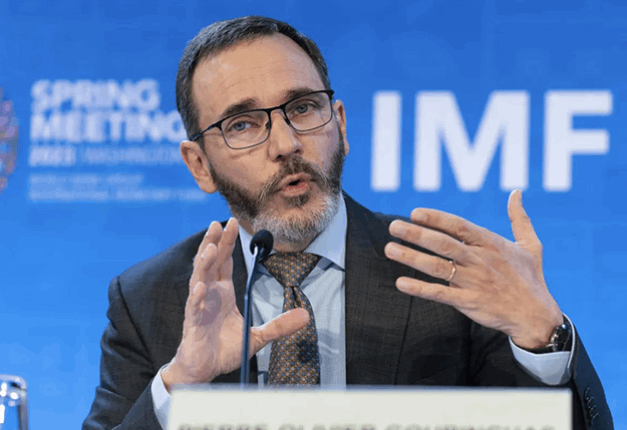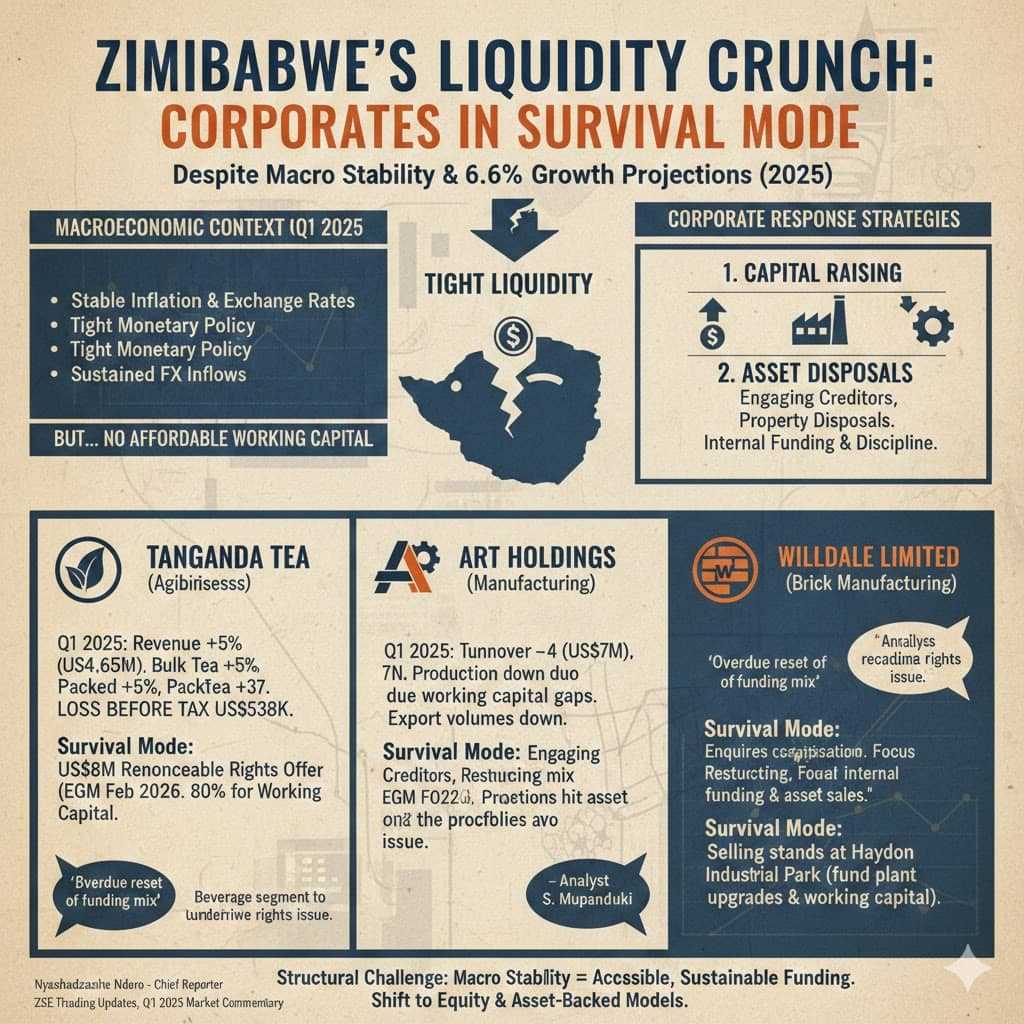
Zim Now Writer
The International Monetary Fund has downgraded its global growth projections for 2025 and 2026, warning that escalating trade tensions and rising inflation could have a significant impact on economic activity worldwide.
In its latest report, the IMF slashed the global growth forecast for 2025 by 0.5 percentage points to 2.8%, and by 0.3 percentage points to 3% for 2026. Inflation is now expected to decline more slowly than previously anticipated, reaching 4.3% in 2025 and 3.6% in 2026. These revisions are notably higher for the U.S. and other advanced economies.
IMF Chief Economist Pierre-Olivier Gourinchas described the current economic environment as a reset of the global system that has prevailed for the past 80 years. Speaking to reporters, he said, “We are entering a new era… with extremely high levels of uncertainty about future policies, significantly impacting global economic activity.”
The IMF emphasized that trade tensions, particularly between the U.S. and its global counterparts, are fueling financial market volatility, disrupting investment flows, and tightening financial conditions. The result: weaker growth across all major regions.
United States: Growth is now forecast at 1.8% in 2025, down from 2.8% in 2024. Headline inflation is projected to reach 3% in 2025, one percentage point higher than previously estimated, due to tariffs and robust services sector activity. The risk of a recession has also increased from 25% to 37%, though the IMF is not officially forecasting one.
Related Stories
Canada and Mexico: Tariff impacts have also hit North America. Canada’s growth was revised down to 1.4% in 2025 and 1.6% in 2026. Mexico’s economy is expected to shrink by 0.3% in 2025 before rebounding to 1.4% in 2026.
Europe: The Euro Area is projected to grow by only 0.8% in 2025 and 1.2% in 2026. Germany’s growth was cut to 0.0% for 2025 amid weak industrial activity, while Spain bucked the trend with an upgraded forecast of 2.5%. The UK is also facing pressure, with growth revised down to 1.1% in 2025 and 1.4% in 2026.
Asia: Trade frictions are forecast to reduce Japan’s growth by 0.5 percentage points, down to 0.6% in 2025. China’s economy is projected to expand by 4% in both 2025 and 2026—a downward revision of 0.6 and 0.5 percentage points, respectively. The report notes that while tariffs are expected to reduce China's growth by 1.3 percentage points, strong fiscal stimulus is cushioning the blow.
Global trade growth is now expected to be just 1.7% in 2025—half the pace of 2024—reflecting rising economic fragmentation. Gourinchas warned that continued uncertainty over trade rules and sourcing strategies will make global commerce more expensive and less efficient.
Despite some short-term resilience in financial markets, the IMF says medium-term growth prospects remain lackluster. Its five-year forecast is stuck at 3.2%, below the 2000–2019 historical average of 3.7%.
“The world is not in crisis, but the risks are piling up,” Gourinchas concluded. “Restoring predictability and clarity to global trade is absolutely critical.”




















Leave Comments